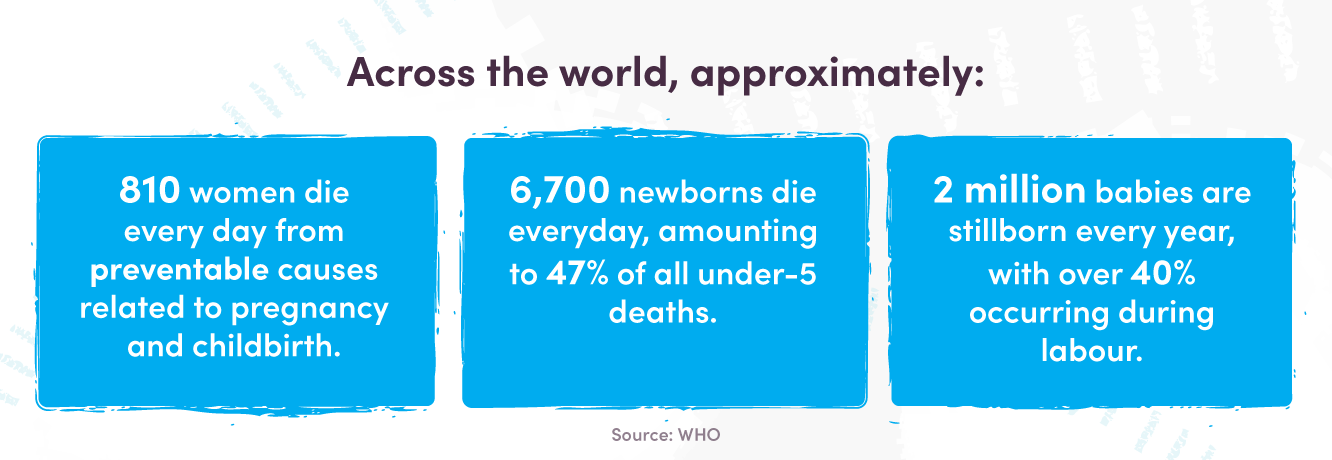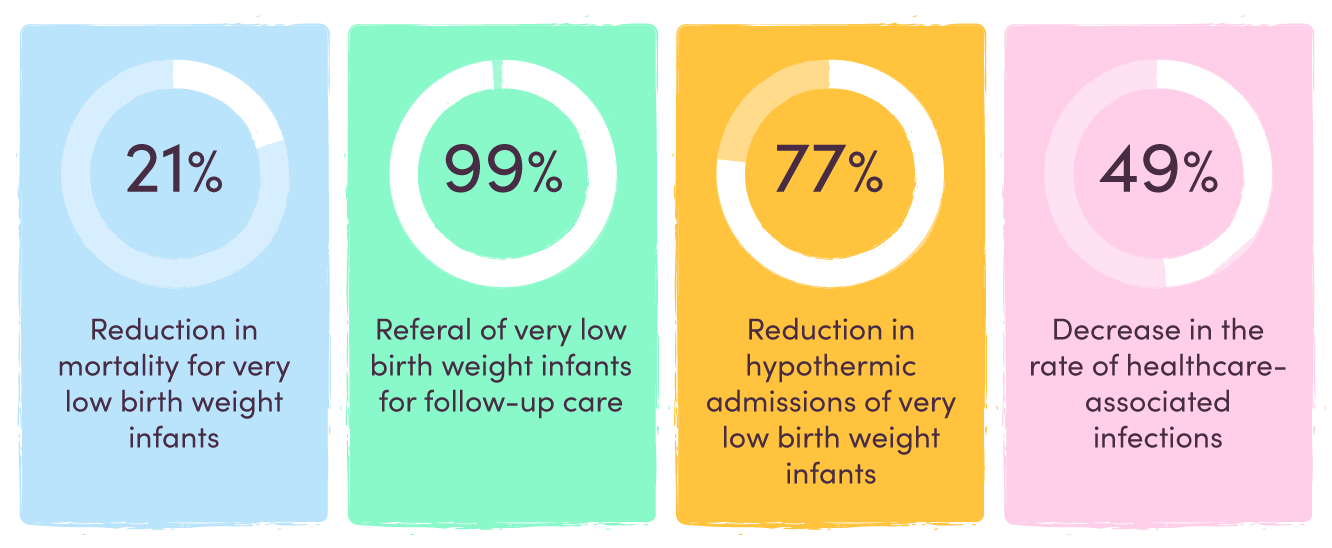Start improving with Life QI today
Full access to all Life QI features and a support team excited to help you. Quality improvement has never been easier.

Organisation already using Life QI?
Sign-up

Published on 16 September 2021 at 18:10

The World Health Organisation (WHO) are marking their third, annual World Patient Safety Day on 17th September focusing on the theme “Safe maternal and newborn care”
Their campaign “Act now for safe and respectful childbirth” highlights the significant risks to women and newborns when receiving unsafe care during childbirth and the actions necessary to accelerate safe care for all.

Whilst great progress in this area has been made there are still question marks over the safety of procedures and the quality of healthcare settings in some areas across the globe. Unfortunately, the COVID-19 pandemic has exacerbated the situation and caused disruption to essential, accessible care and staff shortages.
Thankfully there are a plethora of organisations around the world working hard to improve maternal safety and newborn care. We are honoured to support an ever-growing number of them, ranging from Women’s and Children’s Healthcare Australasia, to several of the NHS Maternity and Neonatal collaboratives, through to a number of the Perinatal Quality Collaboratives in the US.
On this day of awareness raising, we would like to shine a light on three outstanding examples of state-wide collaboratives being run in the US …

California Perinatal Quality Care Collaborative (CPQCC)
The California Perinatal Quality Care Collaborative (CPQCC) is a state-wide network of California’s neonatal intensive care units (NICUs) and High-Risk Infant Follow-up (HRIF) clinics housed at the Stanford University School of Medicine.
Their mission is to improve the quality and equity of health care delivery for California’s most vulnerable infants and their families, from birth and NICU stay to early childhood.
The CPQCC have recently started a collaborative “Optimizing Antibiotic Stewardship in California NICUs (OASCN)” which aims to implement and evaluate an innovative, scalable antibiotic stewardship intervention. Run State-wide, this collaborative, involving 31 teams and 372 antibiotic subscribers aim to safely reduce antibiotic use (Total AUR) by 20% on average among participating sites by end of the 12-month collaborative period.
The CPQCC have had some fantastic results across their collaboratives, the results below speak for themselves:

(Source: CPQCC Website)
Wisconsin Perinatal Quality Collaborative (WisPQC)
Wisconsin Association for Perinatal Care (WAPC) the home of the Wisconsin Perinatal Quality Collaborative (WisPQC) and the Perinatal Foundation (PF) are dedicated to the health of babies and families. WisPQC are running a state-wide collaborative with the aim to “Reduce length of stay of infants identified at risk of having neonatal opioid withdrawal syndrome at birth”. The WisPQC NAS NOWS (Neonatal Abstinence Syndrome/Neonatal Opioid Withdrawal Syndrome) initiative is aiming to reduce the average length of stay by 1 day. (This collaborative is still active at time of blog).
Louisiana Perinatal Quality Collaborative (LaPQC)
The Louisiana Department of Health launched the Louisiana Perinatal Quality Collaborative (LaPQC) in August of 2018, and now works with 40 birthing hospitals across Louisiana, covering 92 percent of births in the state. Louisiana has some of the highest maternal and infant mortality rates in the country, as well as one of the biggest disparities between black and white women.
The current focus of the LAPQC is on increasing the number of safe births in Louisiana through the Safe Births Collaborative, which is being run across 40 birthing facilities. The goal of the initiative is to achieve a 20% reduction in severe maternal morbidity (SMM) among pregnant and postpartum women who experience haemorrhage and/or severe hypertension/ preeclampsia in LaPQC participating facilities. This will lead to an increase in safe births and narrow the racial disparity in this outcome. Analysis of the data is ongoing, but initial reports indicate reductions in SMM of 22-39% and reducing disparity gaps based on race/ethnicity. You can read more about the initial findings of the Safer Births Collaborative here.
LaPQC are also running programs to increase breastfeeding rates (The Gift program), and to improve care for infants with Neonatal Opioid Withdrawal (NOWs). They are part of the national Alliance for Infant and Maternal Health (AIM).
Perinatal Quality Collaboratives (PQCs)
As part of the drive to improve the standard of care for mothers and babies, Perinatal Quality Collaboratives (PQCs) have been established in many states across America. PQCs are state or multi-state networks of teams working to improve the quality of care for mothers and babies. Find out more here.
At Life QI we are on a mission to accelerate healthcare improvement worldwide. In doing so we are incredibly privileged to get to work with organisations pushing forward advances in safe maternal and newborn care.
The determination and commitment of these groups to ensuring the best possible standard of care is available to all is humbling.
Thank you and kudos to all of you!
If you are interested in finding out more about any of the examples mentioned here, please click through on the links included or reach out and we will look to setup an introduction for you.
References:
Full access to all Life QI features and a support team excited to help you. Quality improvement has never been easier.

Organisation already using Life QI?
Sign-up